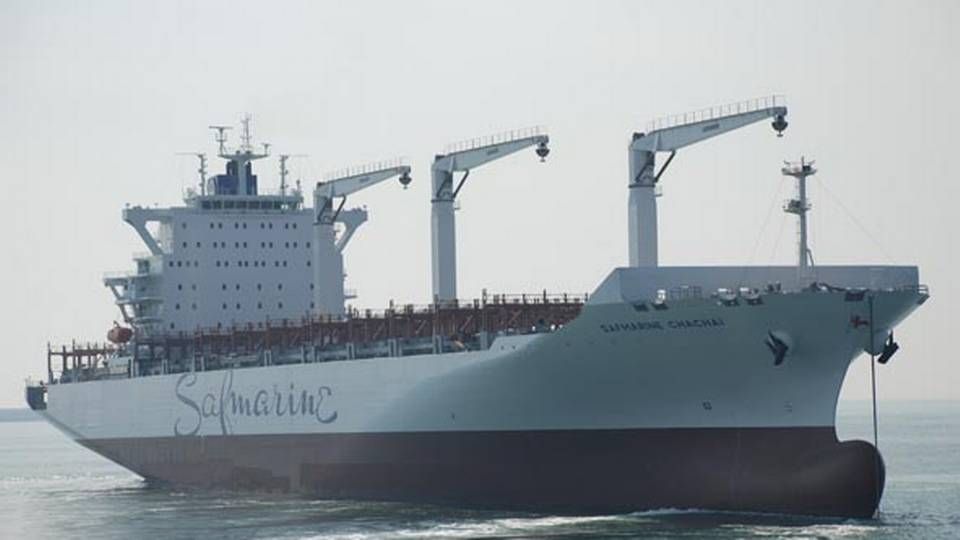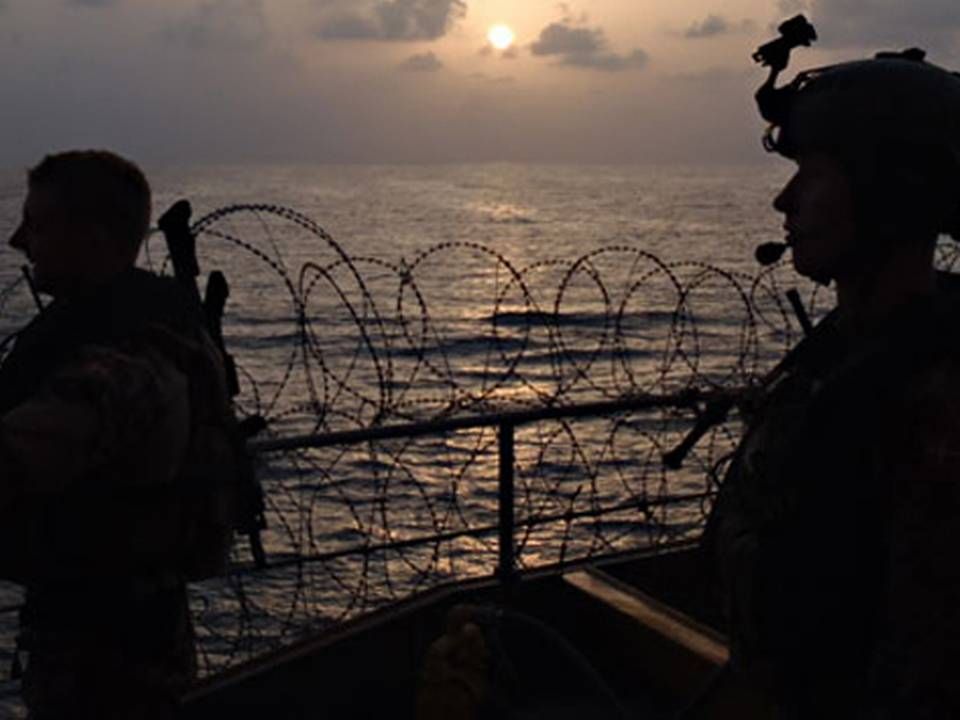Former rebels thought to be behind hijacking of Maersk vessel

It was likely former rebel soldiers in Nigeria who were behind the attack on Friday last week on one of Maersk Line's container vessels, Safmarine Kumaro, CEO Hans Tino Hansen of security firm Risk Intelligence tells ShippingWatch, and he does not see any immediate signs that hijackings and attacks on commercial vessels off the coast of Nigeria and its neighboring states in West Africa will abate anytime soon. Rather the opposite.
According to Hans Tino Hansen, the presumed rebel soldiers were also looking at another vessel when they on Friday morning forced their way onto and took control of the vessel Safmarine Kumaro, which had 25 crew members deployed on board. Media reports inform that the sight of a vessel from the Nigerian navy sent the pirates fleeing, and the container ship and its crew were rescued later Friday with no injuries sustained.
Tough solutions
The international community has in recent years managed to virtually eliminate the piracy threat in the Gulf of Aden and especially off the coast of Somalia due to three decisive factors, notes Hans Tino Hansen:
From procedures on board the vessels to employing armed guards, international naval operations - including passive fleet escort in the Indian Ocean up to the Gulf of Aden as well as counter piracy operations in which naval vessels have targeted pirates directly. These measures were complimented by onshore developments where conditions became more peaceful, which enabled the pirate backers to invest elsewhere.
Piracy costs more than USD 3 billion a year
"Together these three factors made piracy in the Gulf of Aden drop to almost zero. But Nigeria and several other West African nations do not allow foreign, armed guards on board the vessels in the countries' territorial waters. And the heavily-armed Nigerian pirates attack in very large, flat and fast skiffs with maybe 20 men on board, and they are almost attracted when someone opens fire on them. As such, the guards would not have the same deterring effect that was seen in the Gulf of Aden," he says:

"And international naval forces can't operate in Nigerian waters, so all they can hope for is that the situation in Nigeria improves and that the problem can be contained via the neighboring states. There is not a lot of faith in improved conditions in Nigeria due to the poor financial state of the country's economy. No one is sitting around with the answer to solve the problem today, and signs indicate a deterioration of the situation. One could say, with a few exceptions, that what worked in East Africa cannot at all be used in West Africa," says Hans Tino Hansen.
West Africa steps up fight against piracy
The Nigerian economy is - like in numerous other oil-dependent nations - in ruins due to the low oil price, and this has in turn given rise to increased crime, also at sea.
30,000 former rebels
The Niger Delta was for years a battleground for rebels opposing the ruling government, which were both politically motivated, calling for a redistribution of the country's oil income, as well as financially motivated.
In 2009 the government issued amnesty to upwards of 30,000 rebel soldiers, who subsequently received wages by the government and were awarded contracts to protect oil pipelines. This move has been costly to Nigeria, which has for the past six years been paying the rebels to remain calm.
"Nigeria can't afford to sustain its amnesty program, and if the government stops paying the former rebels, these rebels will have to secure an income from elsewhere, typically through various forms of crime," explains Hans Tino Hansen.
Risk Intelligence: Pirates off West Africa not withdrawing
Shipowners: Severe piracy threat off West Africa's coast
Shipowners: Aden attacks could quickly resurface
Related articles
Shipowners: Severe piracy threat off West Africa's coast
For subscribers
Risk Intelligence: Pirates off West Africa not withdrawing
For subscribers
Shipowners: Aden attacks could quickly resurface
For subscribers





















